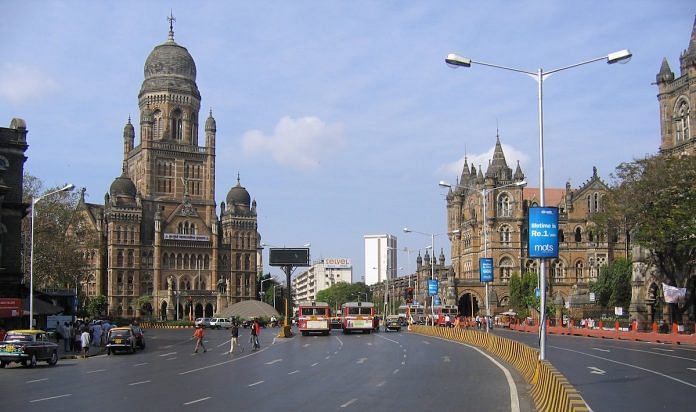India is urbanising fast and the governance of our cities has fallen far behind in its ability to cope with it. The Covid-19 pandemic has taught us an important lesson – decentralisation is key to successful prevention, detection and management of diseases in urban areas. We need governance to be accessible to citizens in their neighbourhoods. Public health is one of the functions listed for devolution to municipalities under the twelfth schedule to the Constitution (Article 243W of 74th Constitution Amendment Act, 1992, 74th CAA).
The 15th Finance Commission, even before the second wave, had called out the need for decentralised primary healthcare to be handled by local bodies, with the engagement of elected councillors, communities and resident welfare associations. It has set aside Rs 26,000 crore for municipalities over the period 2022-2026. While municipalities across India are closely involved one way or another in the fight against Covid-19, they are mostly taking instructions from state governments, either directly or through district collectors. At the heart of the challenge is the reluctance of state governments to implement the 74th CAA in letter and spirit.
Karnataka audit report holds key lessons
A recent audit report of the Comptroller and Auditor General of India (CAG) on the audit of implementation of the 74th CAA in Karnataka has lessons for most states. The CAG, which draws its existence from the Constitution of India, is the supreme audit institution of the country. The CAG reports that are placed before the Parliament and state assemblies are a means to hold the executive (that is, the government) accountable to the legislature.
The report titled “Performance Audit of Implementation of 74th Constitutional Amendment Act” was conducted to ascertain if the Government of Karnataka had empowered its Urban Local Bodies (ULBs) by creating a robust institutional framework besides transferring functions, funds and functionaries. It was tabled in the Karnataka Legislative Assembly in September 2020.
There are ten key observations and recommendations in the report pertaining to Karnataka that have national implications, including future-proofing our ability to prevent, detect and surmount disasters in cities.
First, the decentralisation of functions in cities is more formal than real. While 17 out of the 18 functions supposed to be handled by ULBs have been devolved under state municipal acts, ULBs have full authority only over three.
Second, elections to ULBs need to be held on time and an elected council put in place. Elections, though due in 23 ULBs, were not held, and 210 out of 280 ULBs did not have a functioning council. The absence of an elected council is a mockery of democracy.
Third, the Constitution of India envisaged the establishment of Ward Committees as a means to enhance the role of citizens in urban governance. None of the 10 city corporations except the Bruhat Bengaluru Mahanagara Palike (BBMP) had constituted them at the time of the audit.
Fourth, the Metropolitan Planning Committee whose role is to prepare a draft development plan for the metropolitan region as a whole should be constituted and made effective.
Fifth, the State Finance Commissions need to be constituted on time and their recommendations implemented effectively. There is a nine-year delay so far in implementing SFC recommendations, and a short release of funds of over Rs 15,500 crore during the five years covered under this audit.
Sixth, there is a need to involve ULBs fully in the planning, regulation, slum development, water supply and sanitation functions. State parastatals such as urban development authorities, town planning authorities, Karnataka Slum Development Board, Karnataka Urban Water Supply and Drainage Board, and Karnataka Urban Infrastructure Development and Finance Corporation have in several instances not met their obligations to ULBs and have thus undermined the status of ULBs as democratically-elected local self-governments.
Seventh, the limitations on the ability of ULBs to raise revenues need to be removed urgently. Arrears in water charges more than doubled to over Rs 200 crore by 2018-19, 51 per cent vacancies were observed in the revenue department, and over 50 per cent of 10,000+ rental agreements for properties were not revised (in just 22 out of 44 test-checked ULBs).
Eighth, the ULBs need to present realistic budgets. There was a significant variance in the range of 23-98 per cent between budgets and actuals.
Ninth, the ULBs need greater authority to approve works. City councils can approve projects that cost up to a paltry Rs 2 crore, whereas the Director of Municipal Administration, an unelected executive officer at the state level, has powers to approve projects up to Rs 10 crore. Any work higher than Rs 10 crore needs state government approval.
Finally, ULBs need full power over their human resources. Of the 56,000 sanctioned staff strength, there is 31 per cent vacancy, of which 53 per cent are in Grades A to C.
Also read: Virus hands world leaders sweeping powers they may never give up
Overhaul CAA for local bodies to thrive
Similar studies and reports in other states would be instructive and useful, though unlikely to be very different in terms of the nature of findings.
Globally, there is wide recognition that cities are best governed through empowered local self-governments. This spirit is pervasive in the 74th CAA. As this audit report reveals, too little has been done so far in 27 years and far more needs to be done urgently to implement it in letter and spirit. Covid-19 has revealed the perilous consequences of not taking governance in cities closer to where people live and work. It is time we overhauled the 74th CAA and made it meaningful through appropriate amendments to state municipal acts.
EP Nivedita is Principal Accountant General Karnataka and Srikanth Viswanathan, @srikanthviswana, is CEO, Janaagraha. Views are personal.
(Edited by Srinjoy Dey)



